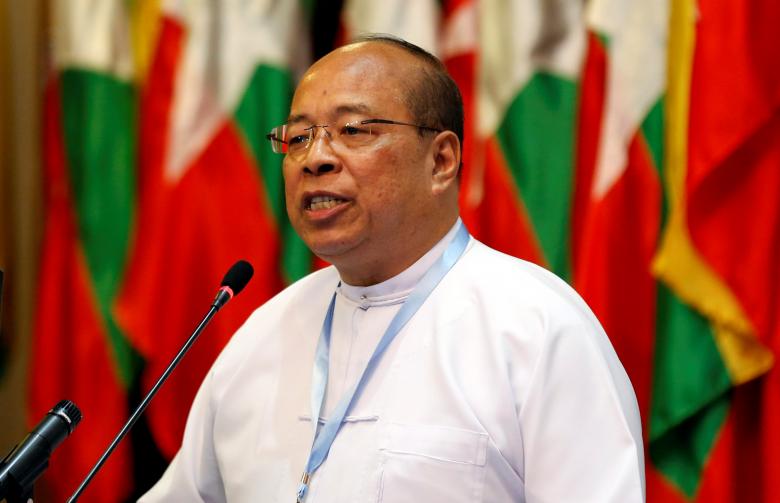Myanmar reiterated on Tuesday that there was no ethnic cleansing against Rohingya Muslims in the troubled state of Rakhine.
A senior government official denied ethnic cleansing in the northwestern state where a military operation aimed at the minority has forced 75,000 people to flee to Bangladesh.
Attacks on Myanmar border guard posts in October last year by a Rohingya insurgent group ignited the biggest crisis of country leader Aung San Suu Kyi’s year in power.
A UN report in February said Myanmar’s security forces had committed mass killings and gang rapes against Rohingya during their campaign against the insurgents, which may amount to crimes against humanity.
The military has denied the accusations, saying it was engaged in a legitimate counter-insurgency operation.
Thaung Tun, a recently appointed National Security Adviser, reiterated the claim made by Nobel Peace Prize winner Suu Kyi during a recent interview when she said “ethnic cleansing is too strong an expression to use for what is happening”.
“There is no ethnic cleansing of Muslim minority in Rakhine,” Thaung Tun told a group of diplomats in Myanmar’s largest city, Yangon. “It is a matter of people on different sides of the divide and the government is striving to overcome the situation and to close the gap.”
His comments come amid several ongoing investigations into the allegations, including one mandated by Suu Kyi’s government and chaired by the vice-president and former head of military intelligence, Myint Swe.
Last month, the top UN human rights body agreed to send an international fact-finding mission to investigate the allegations – a move that Myanmar has opposed.
While the UN February report stopped short of explicitly labeling the actions of the security forces as ethnic cleansing, it said the violence committed against the Rohingya “has been described in other contexts” as ethnic cleansing.
It also expressed “serious concerns” that the attacks were a result of a “purposeful policy designed by one ethnic or religious group to remove by violent and terror-inspiring means the civilian population of another ethnic or religious group from certain geographic areas”.
Thaung Tun said the government needed time and space to address the issues and “where there is clear evidence of wrongdoing, we will take firm action in accordance with the law”.
He added the government had initiated the process of closing down some of the camps where tens of thousands of Rohingya internally displaced people have lived since clashes with ethnic Rakhine Buddhists in 2012, but did not provide any specifics of what is likely to be an extremely complex process.
It was not immediately clear where the inhabitants would go.
The move to shutter the first of those camps comes after a commission led by former UN chief Kofi Annan called on the government to close them as part of a series of measures designed to heal simmering ethnic tensions.
Myanmar has long faced international condemnation for its treatment of Rakhine’s more than one million Rohingya, who many from the Buddhist majority reject as illegal immigrants from Bangladesh.
The vast majority are not granted citizenship and face severe restrictions on their access to education, healthcare, food and movements despite many living there for generations.
Thaung Tun also defended the government on Monday, saying authorities were doing their best to push forward the citizenship verification process.
“We want to dissolve the issue of statelessness. We need the cooperation of all stateholders in order for us to go forward,” he said.
